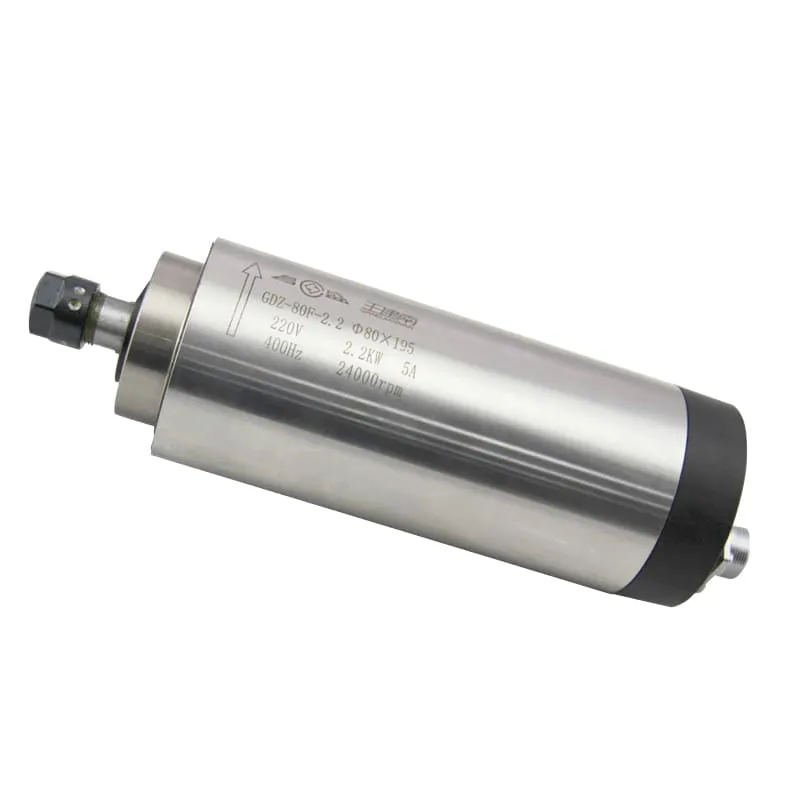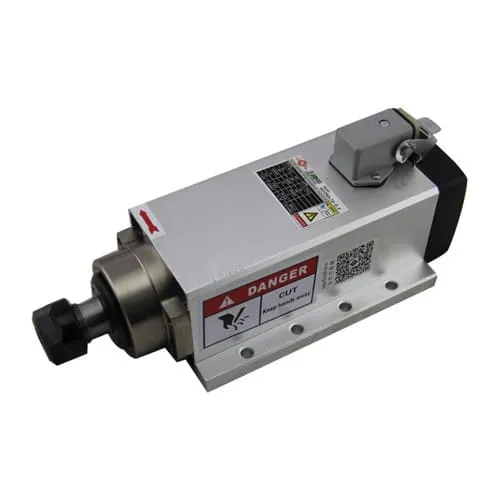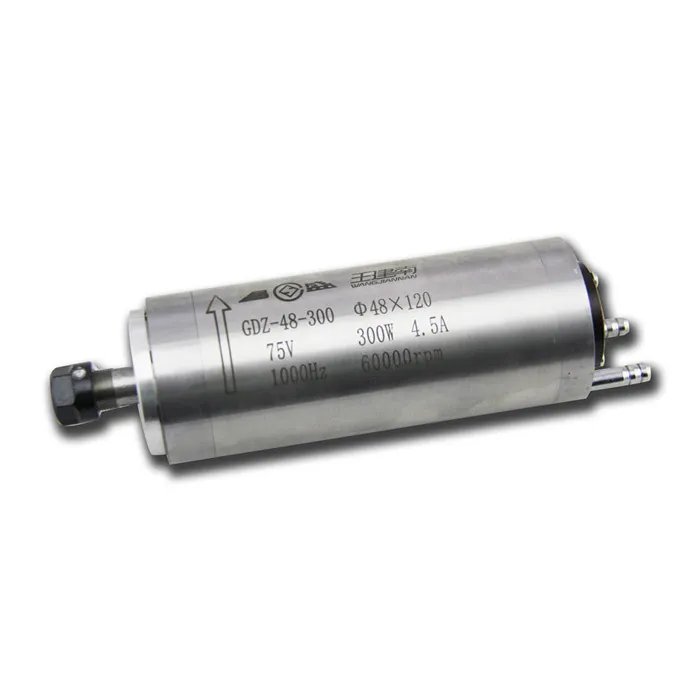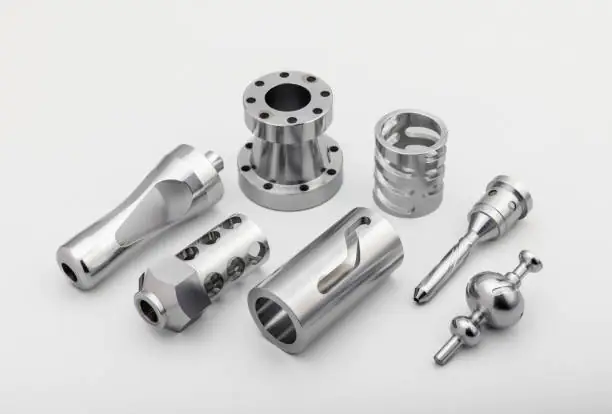How long to get CNC certified?
Obtaining CNC certification is a crucial step for those looking to advance their careers in the manufacturing industry. The journey to becoming a certified CNC machinist is both rewarding and challenging, requiring dedication, hands-on experience, and a solid understanding of computer numerical control principles. In this comprehensive guide, we’ll explore the various aspects of CNC certification and provide insights into how long you can expect the process to take.
Understanding CNC Certification
CNC certification validates your skills and knowledge in operating computer numerical control machines. These machines are the backbone of modern manufacturing, used to create precision parts for various industries, from aerospace to medical devices.

At the heart of CNC machines are spindle motors, like the 2.2KW ER16 Air-Cooled Spindle, which provide the rotational force necessary for cutting and shaping materials. Understanding these components is a crucial part of CNC certification.
The Typical Timeline for CNC Certification
The duration of CNC certification can vary widely depending on several factors:
- Your prior experience in machining
- The type of certification you’re pursuing
- The intensity of your training program
- Your individual learning pace
Here’s a general overview of the typical timelines for different certification paths:
- Short-term certificates: 2 to 6 months
- Associate degree with certification: 2 years
- Apprenticeship programs: 3 to 4 years
Short-term CNC Certification Programs
Short-term certification programs are ideal for those looking to quickly enter the CNC machining field or for experienced machinists wanting to validate their skills. These programs typically focus on:
- CNC programming basics
- Machine setup and operation
- Quality control procedures
- Safety protocols
With a duration of 2 to 6 months, these programs offer a fast track to certification. However, they often require some prior machining experience or a strong mechanical aptitude.
Associate Degree Programs with CNC Certification
For a more comprehensive education that includes CNC certification, many opt for associate degree programs. These two-year programs cover:
- Advanced CNC programming techniques
- CAD/CAM software operation
- Precision measurement and quality assurance
- Machine maintenance and troubleshooting

During these programs, students often work with various types of CNC machines and spindles, such as the 2.2KW ER20 Square Air-Cooled Spindle with Flange, gaining practical knowledge of different machining setups.
Apprenticeship Programs: The Comprehensive Route
Apprenticeship programs offer a blend of on-the-job training and classroom instruction. Lasting 3 to 4 years, these programs provide:
- Extensive hands-on experience
- In-depth theoretical knowledge
- Opportunity to earn while learning
- Direct pathway to industry certifications
While apprenticeships take longer, they often result in the most well-rounded CNC machinists, ready for a variety of career opportunities.
Factors Affecting CNC Certification Duration
Several factors can influence how long it takes to become CNC certified:
- Prior Experience: Those with a background in conventional machining may complete certification faster.
- Learning Ability: Individual aptitude for technical concepts can affect learning speed.
- Program Intensity: Full-time programs will naturally progress faster than part-time options.
- Certification Level: More advanced certifications may require additional time and experience.
Types of CNC Certifications
There are various CNC certifications available, each with its own timeline:
- NIMS (National Institute for Metalworking Skills) Certifications:
- Level I: 6-12 months
- Level II and III: 1-2 years additional experience
- MSSC (Manufacturing Skill Standards Council) Certifications:
- CPT (Certified Production Technician): 2-3 months
- Haas Certification Program:
- Basic Certification: 2-4 weeks
- Advanced Certification: 3-6 months
The Role of Practical Experience in CNC Certification
While classroom learning is crucial, hands-on experience is invaluable for CNC certification. Most certification programs require a certain number of documented hours of machine operation. This practical component can extend the certification timeline but ensures that certified machinists are truly job-ready.
Continuing Education and Recertification
CNC technology evolves rapidly, and many certifications require periodic recertification. This ongoing process might involve:
- Annual skill assessments
- Continuing education courses
- Documentation of work experience
Typically, recertification is required every 3-5 years, depending on the certification body.
Specialization and Advanced Certifications
After obtaining basic CNC certification, many machinists choose to specialize. Advanced certifications might focus on:
- Multi-axis machining
- Specific CNC software platforms
- Industry-specific applications (aerospace, medical, etc.)

For instance, learning to operate high-speed machines with spindles like the 60000RPM 300W ER8 Water-Cooled Spindles requires additional specialized training and certification.
Balancing Work and Certification
Many aspiring CNC machinists pursue certification while working full-time. This can extend the certification timeline but offers the advantage of applying learned skills immediately in a real-world setting. Part-time certification programs typically take:
- 12-18 months for basic certification
- 2-3 years for more comprehensive certifications
The Impact of Technology on CNC Certification
Advancements in CNC technology can both shorten and lengthen certification times. While modern machines with user-friendly interfaces may be easier to learn initially, the complexity of advanced features can require additional training time to master.
Soft Skills in CNC Certification
In addition to technical skills, CNC certification often assesses soft skills such as:
- Problem-solving abilities
- Communication skills
- Attention to detail
- Teamwork capabilities
These skills are crucial for success in the workplace and are typically developed throughout the certification process.
The Financial Aspect of CNC Certification
When considering how long it takes to get CNC certified, it’s important to factor in the financial aspect. Longer programs like associate degrees may have a higher upfront cost but can lead to better-paying positions. Apprenticeships, on the other hand, allow trainees to earn while they learn, offsetting the opportunity cost of full-time education.
Career Prospects After CNC Certification
The length and type of your CNC certification can impact your career prospects. Generally, more comprehensive certifications lead to:
- Higher starting salaries
- Greater job security
- More opportunities for advancement
- Ability to work with more complex machines and projects
Preparing for CNC Certification
To make the most of your certification journey and potentially shorten the time required, consider:
- Brushing up on math skills, especially geometry and trigonometry
- Familiarizing yourself with basic machining concepts
- Exploring online resources and tutorials on CNC programming
- Gaining some hands-on experience with manual machining if possible
FAQs
1. Can I get CNC certified without any prior machining experience?
Yes, it’s possible to get CNC certified without prior experience, but it may take longer. Programs designed for beginners typically range from 6 months to 2 years, depending on their intensity and comprehensiveness.
2. How long does it take to become proficient in CNC programming after certification?
While certification provides a solid foundation, true proficiency often comes with experience. Most machinists report feeling confident in their programming skills after 1-2 years of regular on-the-job programming.
3. Are online CNC certification programs as valuable as in-person ones?
Online programs can be valuable, especially for theoretical knowledge. However, hands-on experience is crucial in CNC machining. The best online programs include practical components or are hybrid programs with in-person lab work.
4. How often do I need to renew my CNC certification?
Renewal requirements vary by certification body. Many require recertification every 3-5 years, which may involve continuing education credits, work experience documentation, or retesting.
5. Can CNC certification from one country be valid in another?
While some certifications are internationally recognized, others may be country-specific. It’s best to check with potential employers or local industry associations about the validity of your certification in different regions.
Conclusion
The journey to becoming a certified CNC machinist is one of continuous learning and growth. While initial certification can range from a few months to several years depending on the chosen path, true mastery of the craft comes with experience and ongoing education.
For those passionate about precision manufacturing and technology, the time invested in CNC certification is well worth it. The field offers exciting opportunities to work with cutting-edge technology and contribute to the creation of products that shape our world.
Remember, the length of your certification process is just the beginning. The most successful CNC machinists are those who embrace lifelong learning, staying curious and adaptable in the face of technological advancements. Whether you’re just starting out or looking to enhance your skills, the world of CNC machining offers a rewarding career path for those willing to invest the time and effort into their certification and beyond.
By understanding the various certification options and timelines available, you can make an informed decision about your career path in CNC machining. Whether you choose a quick certification program or a comprehensive apprenticeship, the skills you gain will open doors to a thriving industry that’s always in need of skilled professionals. Your journey to CNC certification is not just about the destination, but about the valuable knowledge and experience you’ll gain along the way.

